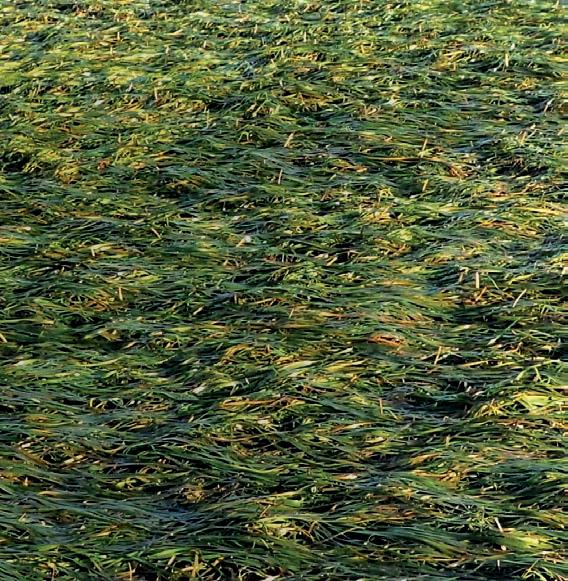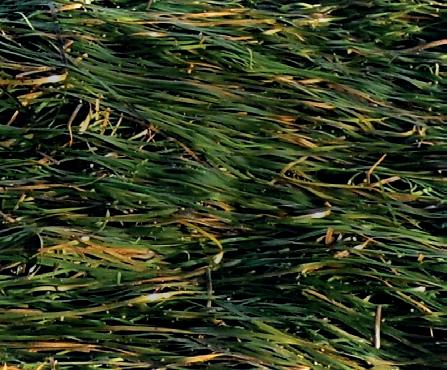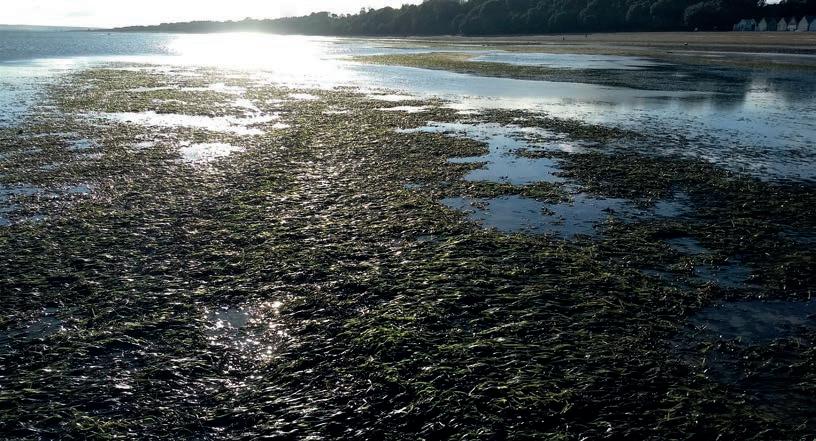
4 minute read
Seagrass partnerships
Project Seagrass is launched

The Solent Seagrass Restoration Project will monitor and restore healthy seagrass beds on our coast.



To work towards our vision of a wilder future with 30% of land and sea restored for nature, the Trust has joined forces with Boskalis Westminster. Together we will undertake an exciting new seagrass restoration project in the Solent.
The Solent Seagrass Restoration Project is beginning with a research and development phase. This phase will help us identify the best methodology for restoring seagrass, a keystone marine species, within the Solent. We will also monitor the habitat as a provider of carbon sequestration, further proving how vital seagrass is in reversing biodiversity declines and comba ing climate change.
We want to see seagrass habitats in the Solent restored towards historical levels and for seagrass to be present in all locations that could support it. By restoring seagrass habitats, we will create a Wilder Solent.
The newly restored area will support The newly restored area will support


ALL IMAGES: TIM FERRERO Seagrass at Osbourne Bay Seagrass at Yarmouth



Calshot seagrass meadow

increased biodiversity and sustainable fi sheries, as well as promoting a greater number of ecosystem services, including cleaner water. Healthy seagrass beds also create a natural solution to mitigating the eff ects of climate change.
The project is being led by the Trust’s Senior Marine Biologist, Dr Tim Ferrero. It allows us to upskill our team, including our Marine Champions, with direct experience of seagrass restoration. Our partners at Boskalis Westminster bring a wealth of knowledge, including that gained by working with other international NGOs on marine habitat restorations. Boskalis Westminster will also provide the Trust with access to the technical equipment needed for the collection and deployment of the seagrass seeds.
Our seagrass restoration project is an essential step in developing natural solutions to climate change. This has been acknowledged with funding raised by players of People’s Postcode Lo ery and The Wildlife Trusts. This funding supports the fi rst year of the project, which includes enabling us to purchase an underwater drone to capture footage of the seagrass.
Spectacular Seagrass
Seagrasses are sometimes known as ecosystem engineers because they can profoundly change the environment in which they are found. They create unique habitats which become biodiversity hotspots for a wide range of wonderful marine wildlife. The long leaves of seagrass are home to all kinds of anemones, hydroids, sea squirts, sea mats and diff erent coralline algae. However, seagrasses also stabilise and oxygenate the sediment, slowing down water fl ow, which creates an ideal habitat for juvenile and adult crabs, sea snails, cu lefi sh, pipefi sh and even seahorses.
A natural solution to climate change
Seagrass plants and meadows have the potential to sequester and store vast amounts of the carbon that is dissolved in our seas - known as “blue carbon”. Like all plants, seagrasses photosynthesise, taking carbon dioxide from the water to build their leaves and roots. As seagrass plants die, they are replaced by new shoots and leaves. The dead material collects on the seafl oor along with organic ma er (carbon) from other dead organisms. This decaying material builds up, forming layers of seagrass sediment. If le undisturbed, the sediment can store and lock in carbon in the seafl oor for thousands of years. Seagrasses can capture carbon at rates up to 35 times faster than tropical rainforests and account for 10% of total carbon burial in the ocean (despite covering less than 0.2% of the seafl oor). This unique ability makes seagrasses one of our most important natural solutions to the climate crisis. Another central element of the project, and part of our Wilder Solent aspirations, is increasing public awareness and engagement. We need more people to care about these incredible seagrass habitats and the benefi ts they can bring to the marine environment within the Solent. One organisation joining us to help lead the way is the Isle of Wight Distillery. The Distillery has commi ed to becoming an ambassador for seagrass and we have already seen several of their team sign up to become Marine Champions. They will help us survey the seagrass and encourage their suppliers and customers into taking action to support the project.
Get involved and help us create a Wilder Solent
Like the team from the Isle of Wight Distillery, you can sign up to become a Marine Champion! Doing so will help us to raise awareness and survey the seagrass and other intertidal species in the Solent. We also welcome direct donations to our marine conversation work. Visit the website










